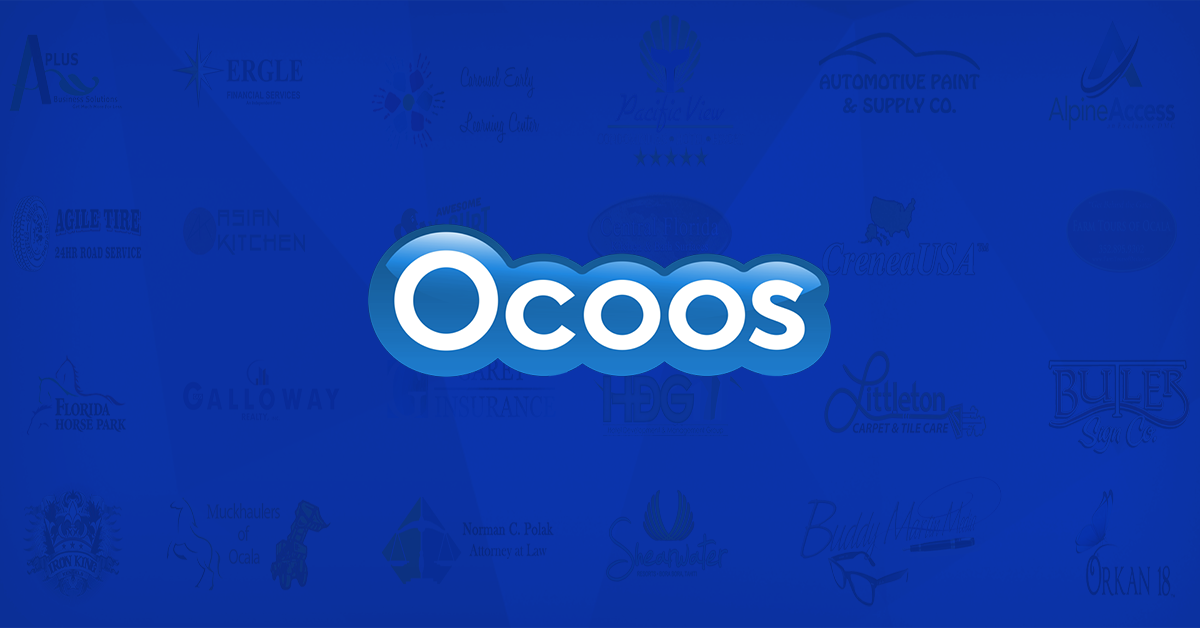Small Service Providers and the Digital Age A white paper on the challenges and opportunity for the Small Service Providers within the digital age
Executive Summary:
Small service providers[1] offer critical services, which are valuable for their customers, and are a significant part of the global economy. However, unlike large enterprises, it is exceedingly difficult for small service providers to excel in all the key aspects of business including business development, marketing, administrative operations, and customer support. The Internet has the potential to resolve many of these challenges, but to date; has only succeeded in overwhelming these small businesses.
This white paper will describe the core challenges faced by small service providers, the current obstacles that stand between these businesses and their customers, and the structure of a potential solution for both the customer and the small service provider.
1.0 Business Development
Driving revenue through business development is a critical function for all businesses. However, unlike large businesses, small service providers face the challenge that business development competes for time and capability against the delivery of the product/service. Thus, the business development task has to be even more efficient for small service providers.
Currently, the choices for business development for small service providers have limited effectiveness. The older forms of demand generation such as advertising (TV, Radio, Newspaper, flyers) can be expensive and often inefficient. Participating in trade shows and associations as well as building referrals and prospects lists can be so time consuming that may take the business owner out of his operation during business development work. The ability to grow awareness and establish a business can be facilitated and localized with current online advancement, by building visibility for customers, while tracking the pace of Internet marketing technology to stay relevant and trustworthy to potential customers.
_____________________________________________________________________________________
Case example: “Business Development”
An outdoor guide in Florida may be focusing on targeting the booming Brazilian tourists. Although a standard website provides access to these potential costumers, how would this tour guide place his offering in a trusted ecommerce platform to make a sale? The guide would not only need to communicate in Portuguese, but needs to differentiate his/her self from the other guides in the area. By joining a trusted place for ecommerce and tourism that also participates in international marketing and targeted market reach, the guide now has the potential to build a market in the Brazilian community and offer a customized service, while allowing them to book and buy online for safety of travel. A large amount of sales in these industries are lost due to trust, which drives the consumer to work with large and established organizations instead.
______________________________________________________________________________________
Visibility: Current solution for building effective online presence is to invest in building a website and drive traffic towards the website with a never-ending process of content generation/social engagement. The objective of all of this work is to be in the top ten of search rankings. Not only is the “Top Ten” seemingly impossible to reach, it is rarely linked to top ten in service quality. Top spots are typically reserved for those providers with the most resources.
Issues with this approach are significant. From a small service provider’s point-of-view, the costs of building and maintaining are complex and expensive. When everyone is employing the same strategy, the end result is an “arms” race where only the arms dealers (web consultants, internet advertising platforms) benefit. For the consumer this structure naturally creates a complex process and trust gap that creates a barrier for buying services online. All of this has the characteristics of a street market: a disorganized marketplace, vendors spending a great deal of energy to gain attention, and the customer trying not to make eye contact.
Internet Marketing Technology: While the basic “search” model is well established for Internet marketing, the rate of pace of online technologies is accelerating. At a high level, technology thrusts beyond search include social marketing[2], integrated mobile[3], Ecommerce, and various types of review sites. Within each category are a growing number of companies, and the number of categories itself is also increasing (Remember when social was just Facebook? This category has expanded to new widely popular concepts: Pinterest, Twitter, Instagram, Klout, etc.) Small businesses may be spending too much time and money attempting to keep up and be effective
Figure 1 shows the rate/pace of innovation in the Internet marketing world, and the picture is so complex that even experts have difficulty in tracking the state-of-art.

2.0 Marketing
Traditional marketing consists of a process of segmentation and then building attractive offerings for that segment. Most small service providers are very good at their craft, but are often not trained in the art of marketing. The Internet has the potential to significantly enable success and expand market reach (specially to non-local markets), but there is a complete lack of tools to help with this very important task. Specifically, there is very limited capability for:
- Market Segmentation: As a marketer, who are my customers? What is the market size? How do I communicate with them? How do I stay current? How do I manage my brand and message? How can I offer a differentiated offering? How do I manage my clients? For foreign customers, what is the language of choice?
- Partnerships: As a small service provider, the most compelling offering may be a combined offering which can often lead to a next level value statement. Today, small service providers have few tools to build advanced offerings and partnerships efficiently. Often are built with local friendships which are very effective, but just the beginning of the possibilities.
_____________________________________________________________________________________
Case example: “Marketing”
A: Market Segmentation: How does a Yoga instructor with amazing classes on the Beach in the Florida Keys achieve access to active individuals and let them know she has a unique and different experience? The instructor has an offering that is appreciated beyond the local market; fortunately the Internet provides large “pools” of these active individuals. The challenge is creating awareness of this experience. If the Yoga instructor could efficiently insert his/her offering in a domain where active individual participate, interact, and learn, his/her business could instantly grow exponentially. Currently this one-person business does not have the tools or bandwidth to perform this task.
B: Partnership: To continue with the previous example, how does this Yoga instructor build partnerships with local day cares for participant’s children or with local health restaurants, in a manner that is valuable and accessible to new customer whether they are coming from local areas or as far as Asia? This ability for small business to work together can add value and differentiation. Although achievable with today’s technology, the tools for this interaction have not yet become accessible.
Further, a nearby upscale resort can add value to its guests by educating them of such interesting things to do in the local area before they even decide to come visit. But a partnership between this large resort chain and a Yoga instructor is not feasible unless the resort is also integrated in the same platform with “pools” of active individuals and travelers.
In this example alone, four businesses have seamlessly come together to provide value to a customer and themselves. Currently this experience could only be made possible by substantial effort by a customer research and plan.
______________________________________________________________________________________
3.0 Administrative Operations
Large companies invest heavily to automate the administrative aspect of their enterprise, which becomes rationalized with scale and does not effect standard operations. For example, General and Administrative (G&A) expenses for a large public company are typically below 3%. Small service providers do not have the luxury of investment nor time to handle administrative operations without impacting day-to-day operations and providing their service.
Thus, today’s typical administrative operations range from paper/pencil to files stored on a local computer. These methods are quite fragile and inefficient. For internal operations such as finance, the consequence is outdated and inefficient process, and can greatly benefit if moved to the cloud. No longer do service providers need to be in the office or carry paper copies to access their customer information or financials. With use of the cloud, access to this information can be available from anywhere and on any device.
Internal inefficiencies are only a matter of impact on profitability; issues with customer facing operations can be dire for the business. Word of Mouth advertising may be the most trusted and influential way of gaining awareness of your services and the parallel to this online is review systems. However, because of the open nature of the Internet, a disgruntled individual (not always a customer) can cause a very large problem for a small service provider.
Many sites promise credible reviews, but often they are subscription based and placement may be driven by factors other than quality service. Service providers struggle to find a review system with good core values coupled with significant consumer traffic. Without an active strategy for operations, customer support, and quality improvement, small service providers are subject to the whims of the “open” Internet review marketplace. Figure 2 shows the impact of Internet customer reviews on buying behavior.

___________________________________________
Case example: “Administrative Operations”
The owner of a local landscape business can automate booking so all his employees who are out on the field can be synced on day’s jobs. Daily finances can be compiled in a simple system that connects to employees, customers, and date so that whether the owner is in the office, out on the field, or on vacation, can seamlessly manage his business through the Cloud[4]. The benefits of these capabilities become greatly highlighted in a business such as landscape, where scheduling and payments are very logistical, hands on, and tend to absorb a full time employee. In this industry where “word-of-mouth” dominates marketing, the ability for the owner get away from the books to focus on providing quality service is highly important.
___________________________________________
4.0 Anatomy of a Solution
All the issues detailed above are not only issues for small service providers, but also for customer who need to connect to these service providers. There are four key elements for a solution:
- Intermediate Platforms[5]:
- Cloud Based Infrastructure:
- Business-to-Business Network:
- Internet Marketing Technology Provider:
Intermediate Platforms: Consumers needs an organized platform to make their engagement simple and effective. Often the amount of content, trust issues, and complicated search process is so overwhelming that it becomes counter productive for businesses trying to reach the customer. By providing a defined place to communicate, learn, and shop small businesses both the consumer and business can progress.
In retail, a large part of this organization has already taken place with intermediate platforms such as a “supermarket” or “office super stores.” The Internet is in its early stages when it comes to this front. Just as in the retail sector, all parties would benefit from a series of intermediate platforms, which provide a better match between consumers and service providers.
Cloud Based Infrastructure: Cloud-based infrastructure is one of the key mega-trends driving the marketplace. Cloud based services allow the buyer to consume services without the headache of the management of electronic/software infrastructure. Small service providers would benefit from a cloud based infrastructure which can offer services around finance, operations, and client management seamlessly from anywhere on any web enabled device.
______________________________________________________________________________________
Case example: The “Cloud”
A locksmith with adequate online tools could be in the middle of a job and receive a text and calendar update of his next job, which has been input into all of his/her calendars automatically. The service has been paid online, and the locksmith can simply focus on providing good service and being efficient. When the locksmith has time later in the day he can access his full day of operations from anywhere on any device, see what tomorrow will be like, and interact with past, present, or potential customers accordingly. Advancements in cloud computing have made these types of services accessible and efficient.
______________________________________________________________________________________
Business-to-Business network: The Internet has greatly enhanced the ability for individuals to engage with each other with a vast variety of products (Facebook, Meetup, Twitter, etc.) However, the ability for businesses to partner in a low friction fashion does not exist. Small service providers in particular would benefit from a capability to partner easily to build larger value statements for their customers.
Internet Marketing Technology Provider: Much like cloud-based infrastructure companies such as Rackspace have removed the need to manage hardware resources for Internet companies. There is a need for an Internet marketing technology provider to offer small businesses state-of-art business tools and marketing technology that is simple to use and low cost. The ability for small business to increase their web presence while making their operations accessible and integrated will facilitate and drive progression of small businesses.
5.0 Thriving in The Digital Age
- Online commerce and booking is increasing
- Mobile booking is increasing
- Adoption rate for online scheduling and transactions are on steep incline
Effective access to all businesses is the end objective, but small service providers need to be willing to adapt. Once Small Service Providers are given the ability to catch up with the online revolution, there will be huge benefits to all who participate. The Internet provides access to the world’s largest accessible market, in order to thrive small business must have access to advanced and cost effective tools.

[1] Small Service providers (SSP’s): Typically any business <20 employees that offers a service as its main offering. (Ex. Plumbers, contractors, Yoga/fitness instructors, tutors, tax accountant, etc.)
[2] Social Marketing: The process of gaining website traffic or attention through social media sites.
[3] Integrated Mobile: Providing mobile capabilities for your business in a society that is very quickly going mobile
[4] The Cloud: Cloud computing is Internet-based computing; Meaning resources, software, and information is provided computers and other devices on demand. Information is stored securely and privately on the “Cloud” so you can request and access it from anywhere on any device.
[5] Intermediate Platforms: Industry consolidating platform, which aggregates businesses and provides a destination for consumers in order to provide a more efficient and effective marketplace.


